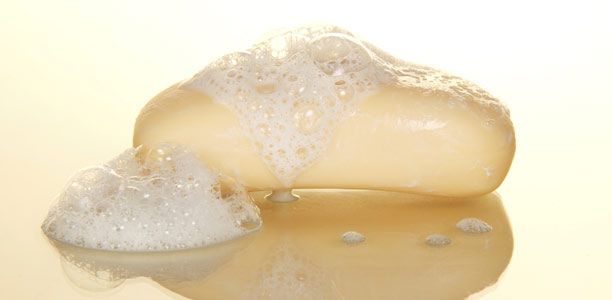Hot potato is an old favourite with kids. Use a bar of soap as the hot potato and it’s a fun way to teach kids about hand washing. They’ll also improve their motor skills and develop socially from playing this game.
Age
2 – 10 years
Duration of activity
About 10 minutes.
Materials/equipment
- A group of children- the game will last longer if you play with more children.
- Soap, running water and hand washing facilities which are appropriate for your child’s age.
- Music that’s appropriate for children and a music player.
Cost
- You won’t need to buy anything to play this game- just find a bar of soap and some children’s music.
Preparation
- Make sure you have hand washing facilities that are appropriate for the children’s age.
- You’ll also need some music the children love. Set up the music player where it is easy to turn on and off and the children can hear it.
What to do
- Ask the children to stand in a circle.
- Show them the bar of soap and tell them it’s a hot potato- it’s great to eat but can burn their hands if they hold onto it for too long.
- Unless the children are already familiar with hot potato, start by explaining the game.
- The idea of the game is to throw the hot potato around until it cools down enough to eat. Tell them that because this is soap and not a real potato they won’t be eating it. Instead, when it cools down enough they will use it to wash their hands.
- While the music is playing they need to catch the hot potato when it is thrown to them, then throw it to the next child as quickly as possible so that they don’t get burnt.
- When the music stops, they should stop throwing the hot potato soap. The person who is holding it gets burnt. They are out and leave the circle for the rest of the game. The other children continue playing.
- When you have explained the game, give one child the bar of soap and turn the music on. They should throw the potato to the next child when the music starts.
- When the hot potato has passed between several children’s hands, turn the music off.
- Tell the child that is holding the potato that they’re out and ask them to leave the circle and watch for the rest of the game.
- Continue turning the music on and off until there is only one child remaining in the circle.
- Tell the last remaining child that their prize for playing so well is that they get to wash their hands first.
- Tell the other children that they will also get to wash their hands, after the winner. You could line them up at the sink in order of when they got out of the game.
- Take the children to the hand washing facilities and help them wash their hands according to the correct hand washing technique.
- Sing hand washing songs with the children while they are washing to make this part of the activity more fun.
- If your children have hand washing star charts, don’t forget to put a star on after they’ve washed their hands.
Tips
- This is a great game to play before hand washing times. For example at a children’s party you could play this game just before serving the party food. Or you could make it the last game in outdoor play time for group of children. Children should wash their hands after playing outdoors and playing hot potato will ensure hand washing is part of the fun rather than an extra chore.
- For toddlers and younger children, pass the soap instead of throwing it. They won’t yet have developed the ability to catch a small object like the soap if it is thrown.
- Pre-schoolers will be learning to catch big balls and bean bags. Use a pretend bar of soap that is big and easy for them to catch, for example a bean bag labelled with the word soap.
Safety
- Supervise children at all times when in the bathroom washing hands.
- Be aware that a bar of soap might be dangerous if it is thrown hard. Make sure the children throw underarm and supervise them while they are playing.
Educational outcomes
Awareness of health and wellbeing
Hand washing is one of the most important things children can do to prevent infections and stay healthy. Learning what they need to do to keep their body healthy is an important part of childhood development. Linking hand washing to fun games like hot potato is a great way to help them develop healthy habits, because they will be having fun at the same time.
Communication and language skills
 The best way for children to learn how to communicate is by doing it. In early childhood everyday communication, for example talking with other children in a group and listening to instructions are great ways to develop their communication skills. You can help by speaking in simple sentences that are appropriate for the children’s age and giving them opportunities to practice new words and phrases. . You’ll notice children get better at following instructions and pronouncing words, and use increasingly complex sentences as they grow older. Singing hand washing songs that involve repetition and rhyme will provide extra opportunities for the children to learn about language.
The best way for children to learn how to communicate is by doing it. In early childhood everyday communication, for example talking with other children in a group and listening to instructions are great ways to develop their communication skills. You can help by speaking in simple sentences that are appropriate for the children’s age and giving them opportunities to practice new words and phrases. . You’ll notice children get better at following instructions and pronouncing words, and use increasingly complex sentences as they grow older. Singing hand washing songs that involve repetition and rhyme will provide extra opportunities for the children to learn about language.
Social and emotional development
Being part of a group of children playing together is a great way for children to increase their awareness of the community they are part of. Learning the rules of the games and practicing following them will help children develop self-control, and how to express their emotions in healthy ways. For example they may feel disappointed if they are put ‘out’, but they will learn to express this in controlled ways, perhaps by saying that they are disappointed rather than having a tantrum. Knowing that they cannot always be the winner will help them learn about sharing, as will passing around the soap. Teaching children about routines like hand washing and why they’re important also helps children develop socially.
Motor skills
Hot potato hand washing will help your child develop both gross and fine motor skills. They’ll be developing gross motor skills (the skills needed to control the big muscles that work their arms and legs) when they throw and catch the soap. Toddlers may have difficulty catching, so getting them to pass the soap will work better. Children between 3-5 years of age will be learning to throw and catch big balls and beanbags, so this game will work better if you turn a soft ball or bean bag into a bar of soap- you can do that simply by labelling it with the word ‘soap’.
Using a slippery bar of soap to wash their hands exercises the small muscles that move the fingers so children develop their fine motor skills.
More information about hand washing games and activities.
References
- Abraham K, Curriculum ideas for exploring handwashing. 2005. (cited 16 March 2014). Available from: (URL Link)
- South Australian Health Infection Prevention and Control. Hand Hygiene Guideline. 2010. (cited 19 January 2014). Available from: (URL Link)
- Virginia Early Childhood Development Alignment Program. Milestones of child development- A guide to young children’s learning and development from birth to kindergarten. 2009. (cited 26 July 2013). Available from: (URL Link)




 (4 votes, average: 3.25 out of 5)
(4 votes, average: 3.25 out of 5) 







